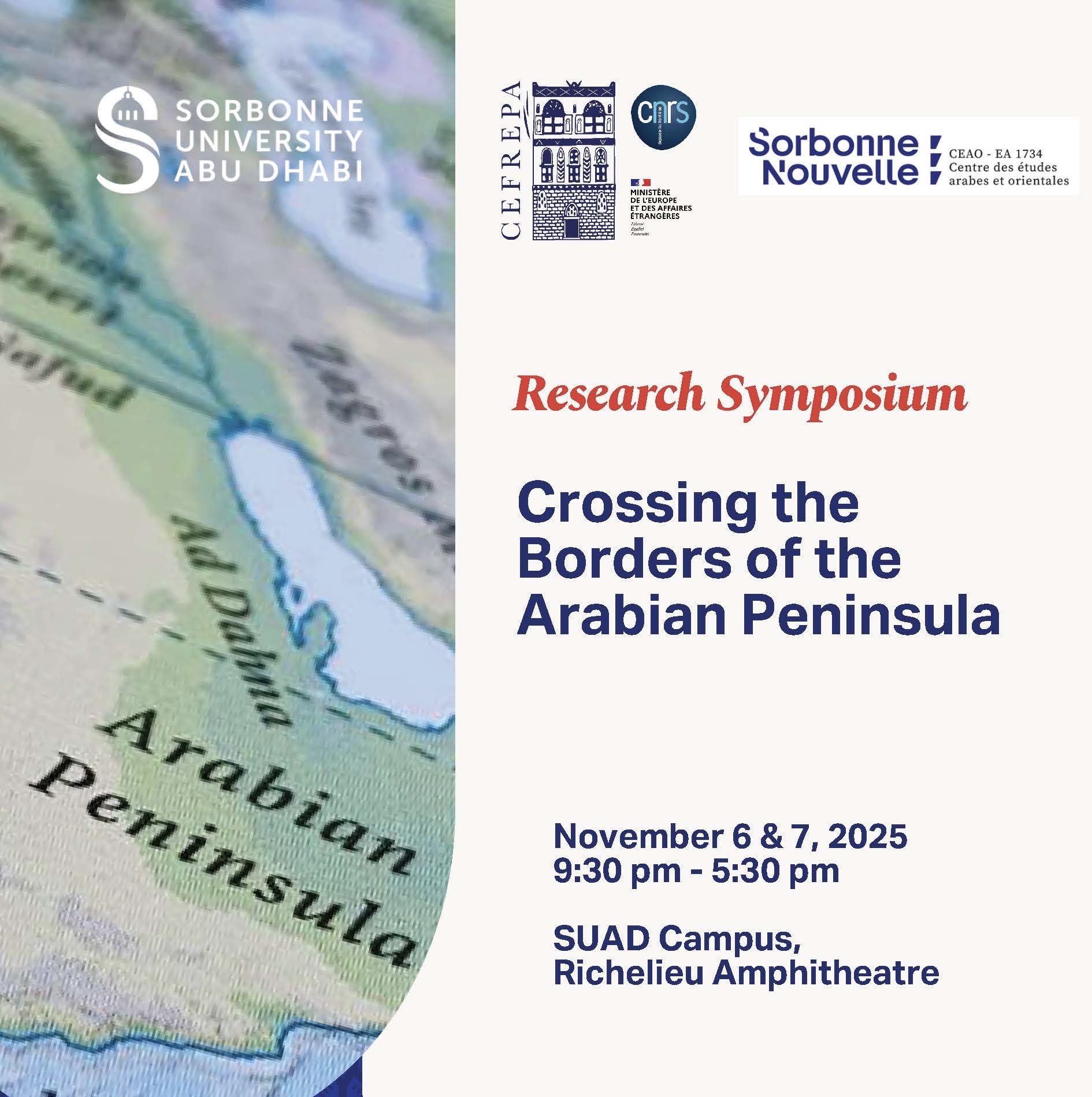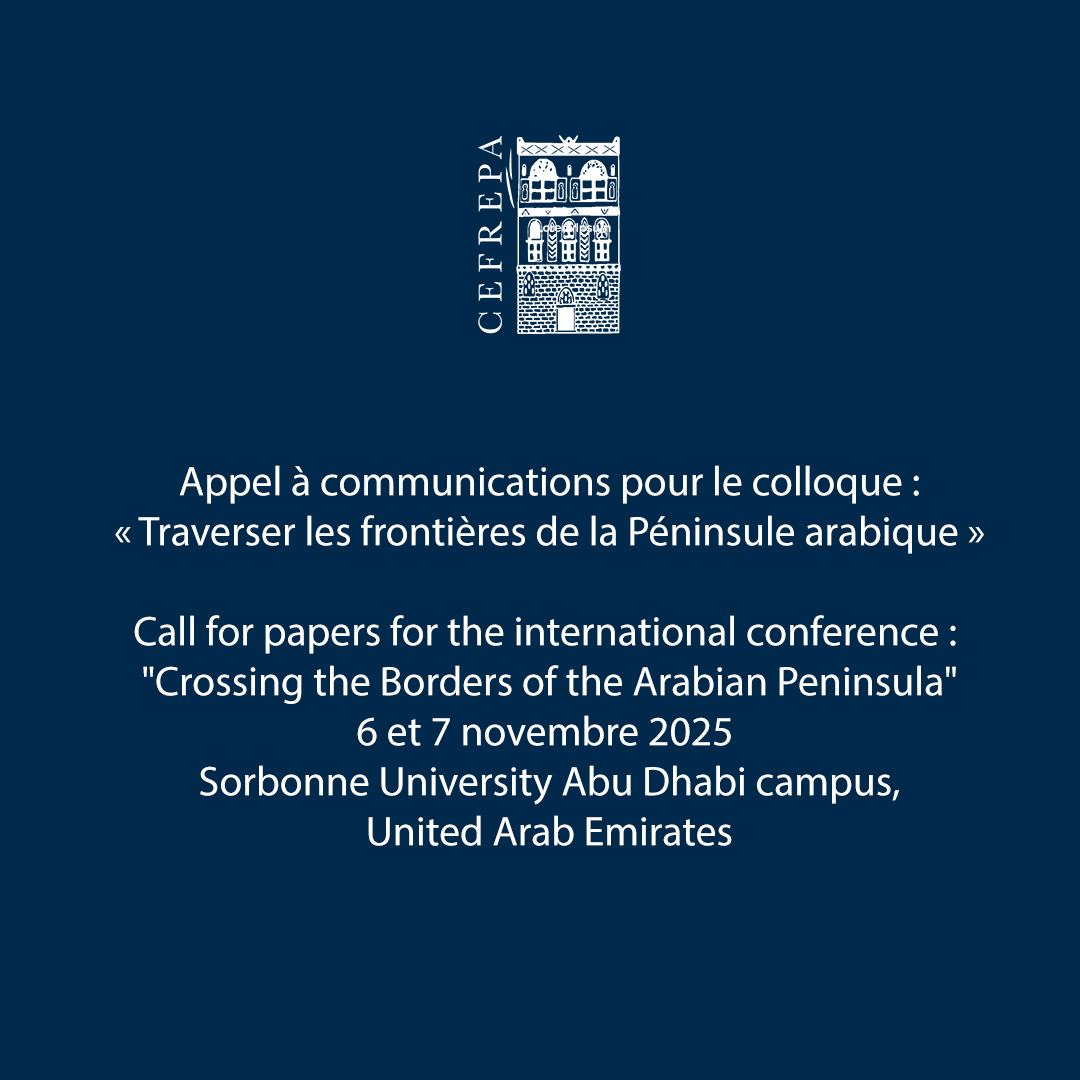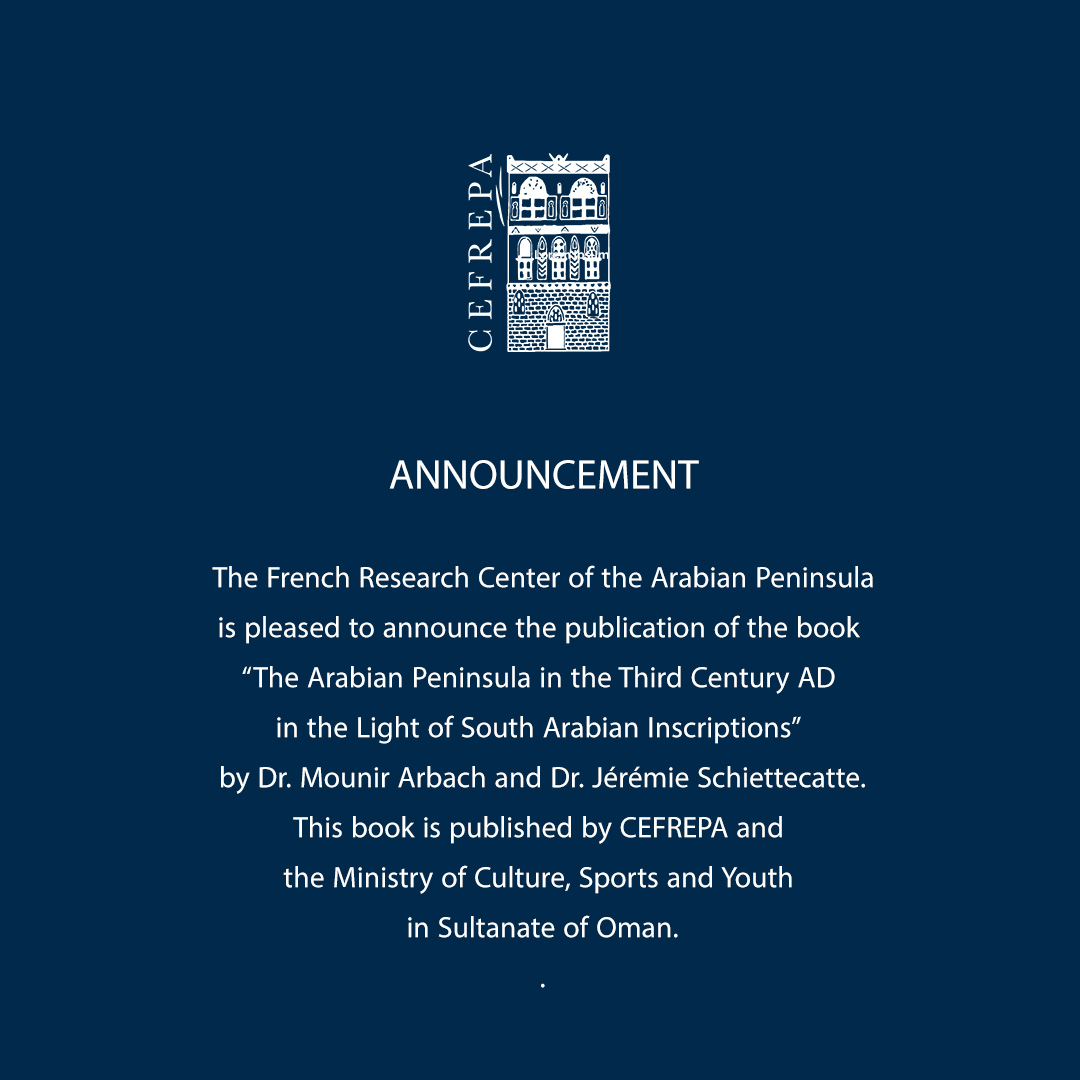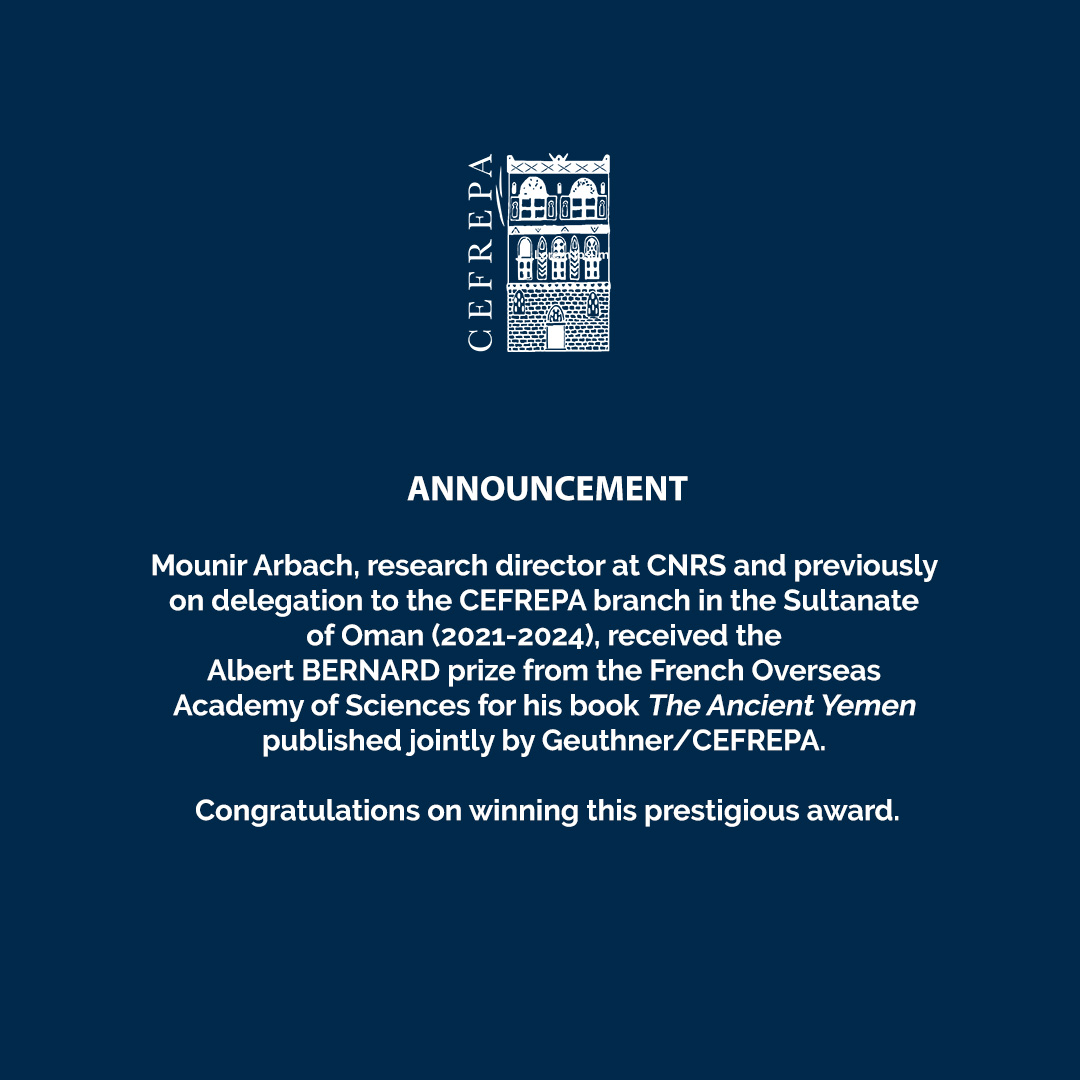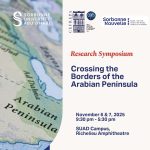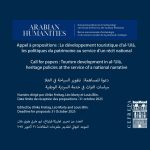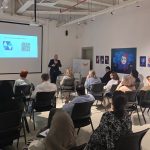Events
Online lecture in the frame of the webinar Archaeology of the Middle East and North Africa from Late Antiquity to the Ottoman period. Second series : Iraq & Arabian Peninsula organized by the Ifpo, the CEFREPA & Udine University
Online lecture in the frame of the webinar Archaeology of the Middle East and North Africa from Late Antiquity to the Ottoman period. Second series : Iraq & Arabian Peninsula organized by the Ifpo, the CEFREPA & Udine University
January 25th, 2 PM Rome | 4 PM Riyad Stephen McPhillips & Guillaume Chung-To (CNRS), « New Archaeological perspectives on Islamic period settlement and landscape use in Khaybar, Saudi Arabia »
January 25th, 2 PM Rome | 4 PM Riyad Stephen McPhillips & Guillaume Chung-To (CNRS), « New Archaeological perspectives on Islamic period settlement and landscape use in Khaybar, Saudi Arabia »
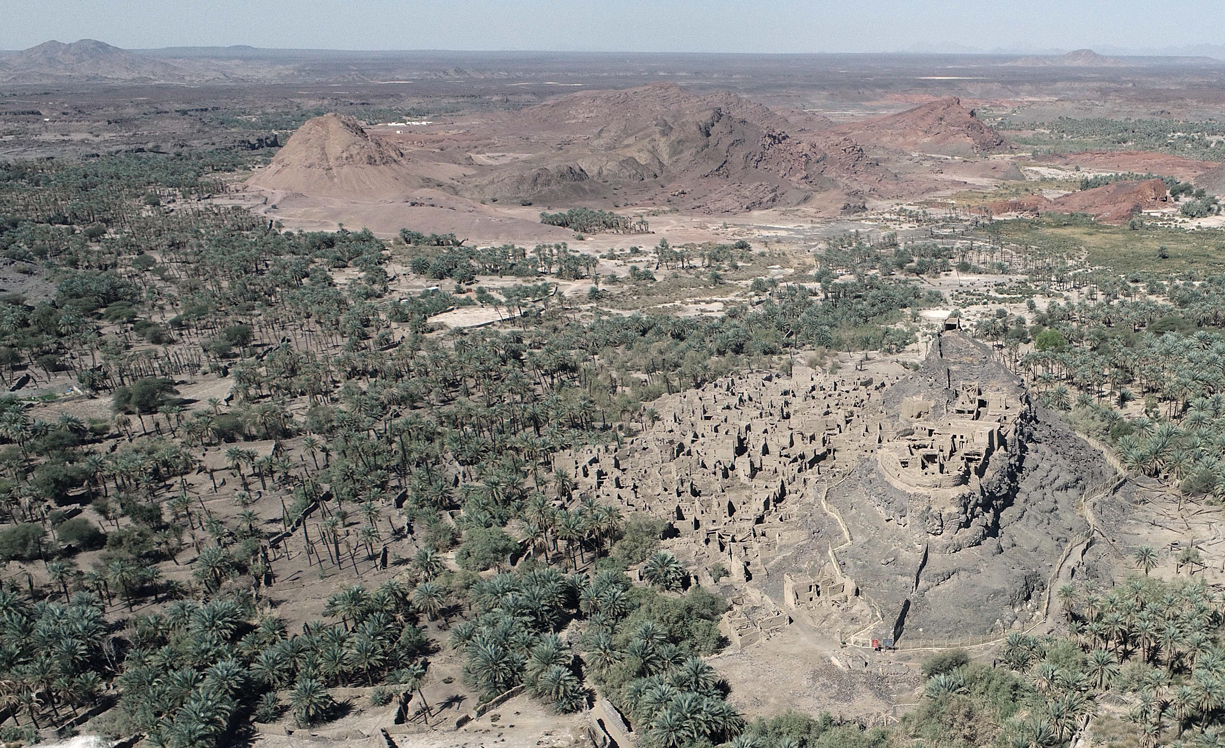
The Khaybar oasis, in northwestern Arabia, is renowned in Islamic history for the battle that took place there in 7 AH/ 628 AD, an important early victory for the prophet Muhammad’s armies in Arabia over the local Jewish tribes, and for being the first recorded instance of the waqf, the Islamic religious endowment. In subsequent centuries Khaybar went less remarked, then, in 2020, the Khaybar Longue Durée Archaeological Project began revealing new faces of Khaybar’s Islamic history. Financed by the Royal Commission for AlUla and the Agence française pour le développement d’AlUla, extensive survey over a 56 km2 area, as well as targeted soundings at key sites, began to reveal not only continuity of occupation from the pre-Islamic period into the Early Islamic era, but also from the Abbasid period, which, potentially, represents a major reorganisation and expansion in settlement and agricultural lands. Significant hydro-agricultural developments are likely to date from this time, along with the creation of two new settlements — in the oasis core and on its periphery — and a change in defence strategy. This season (autumn 2022) two test trenches were opened in the congregational mosque of Bishr, revealing an Early Islamic foundation with multiple later phases of use : this may correlate to the Mosque of the Prophet, referred to by medieval sources. Medieval occupation in Khaybar is represented principally by surface ceramics, including imported pottery from Egypt and Syria, and the identification of fortified village sites. The Ottoman period sees major shifts, notably the presence of large enclosure systems used by the ‘Anaza Bedouin for processing dates into a portable commodity, the marabid, and in the late nineteenth through mid-twentieth centuries, the building of new fortified sites in the oasis core. This led to more de-nucleated settlement distribution which culminated in the foundation of modern Khaybar, to the south of the oasis, in 1979.
To know more and to register : https://www.ifporient.org/archaeology-mena-2/
To know more and to register : https://www.ifporient.org/archaeology-mena-2/
Our
EVENTS
المرأة في خراسان : دورها العلمي والثقافي منذ القرن الثالث إلى القرن السادس للهجرة
Join us this Tuesday 24/01/2023 at 6:00 PM (Kuwait time) for a lecture with Dr. Reem Alrudainy. This lecture will be held in Arabic at CEFREPA.GLOBAL HISTORY OF KUWAIT
The French Research Center of the Arabian Peninsula (CEFREPA) invites you to the presentation of the book “Global History of Kuwait” by Dr. Philippe Pétriat on Wednesday 11/01/2023 at 05:00 PM at the French Residence, Jabriya, Block 10, Street 13, Villa 21Kuwait in the Age of Petro-Modernity : Visual Culture and Urban Transformation since 1950
Join us this Tuesday 24/01/2023 at 6:00 PM (Kuwait time) for a lecture with Dr. Reem Alrudainy. This lecture will be held in Arabic at CEFREPA.Archaeology of the Middle East and North Africa from Late Antiquity to the Ottoman period. Second series : Iraq & Arabian Peninsula organized by the Ifpo, the CEFREPA and Udine University
December, 14 – 3PM (Rome), 5PM (Qatar)
R. Carter (Qatar Museums) & F. Sakal (Qatar Museums), “New Archaeological Insights into the Early Islamic Period in Qatar”
Since 2018 a significant number of new sites dating to the Early Islamic period have been identified in Qatar, through a combination of kite survey, desktop analysis of satellite imagery and ground survey. These are provisionally dated by their surface finds to the 7th/8th and 9th centuries CE. According to historical records and archaeological investigations elsewhere they may be the settlements of either Christian or Muslim communities. The sites present a range of morphologies but can broadly be characterised as either linear or agglomerated, while the economic and subsistence activities of their inhabitants remain poorly understood. Only two sites of this date in Qatar have been excavated and published (Murwab and Yughbi), but excavations of two more (Mesaika and Ain Muhammad) will begin in November 2022. We will present an overview of the sites, along with the first results of the 2022 excavations, and consider the nature of Early Islamic and Christian settlement in Qatar.



